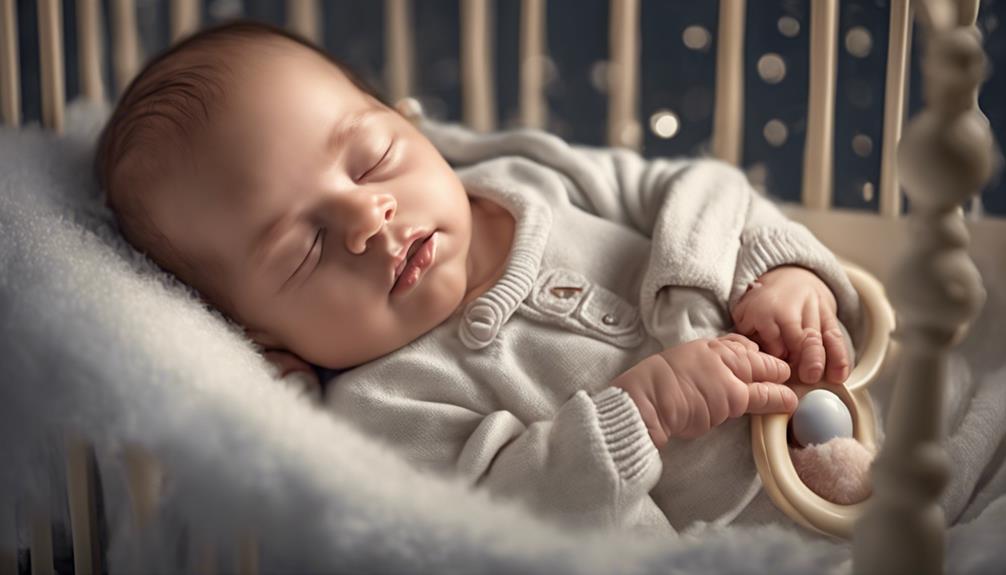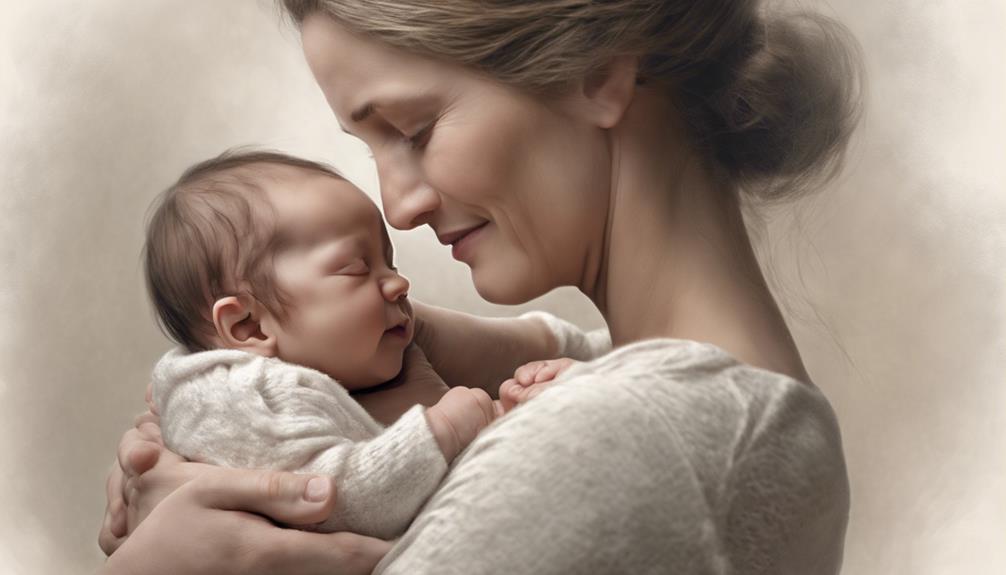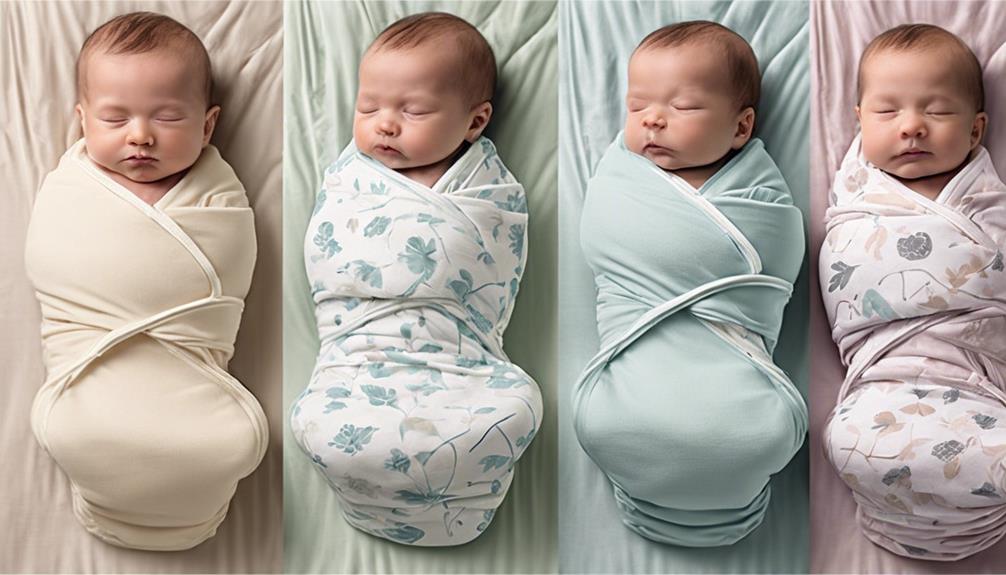When it comes to helping our newborns sleep with a pacifier, finding the perfect technique can feel like searching for a needle in a haystack.
But fear not, as we've gathered some effective strategies to ease your little one into peaceful slumber with the help of a pacifier.
Stay tuned to discover practical tips and expert advice that could make a world of difference in your baby's sleep routine.
Key Takeaways
- Pacifier promotes relaxation, security, and better sleep patterns.
- Choose the right pacifier based on shape, size, and material.
- Introduce pacifier during calm moments for baby's comfort.
- Manage pacifier use during sleep to encourage independent sleep skills.
Benefits of Using Pacifier for Newborn Sleep
Using a pacifier for newborn sleep offers numerous benefits. The pacifier helps babies relax, as it releases endorphins in their brain, providing comfort and a sense of security during sleep.
Not only does it promote relaxation, but it also plays a vital role in reducing the risk of Sudden Infant Death Syndrome (SIDS), a recommendation supported by the American Academy of Pediatrics.
By soothing fussy babies and aiding them in self-soothing, pacifiers contribute to establishing better sleep patterns. Incorporating a pacifier into all sleep routines, including daytime naps and nighttime sleep, can lead to improved sleep for newborns.
The non-nutritive sucking action of a pacifier helps babies calm down, fall asleep faster, and stay asleep longer. Embracing the use of pacifiers for newborn sleep can be a valuable tool in helping babies rest peacefully and safely, benefiting both the baby and the caregivers.
How to Choose the Right Pacifier
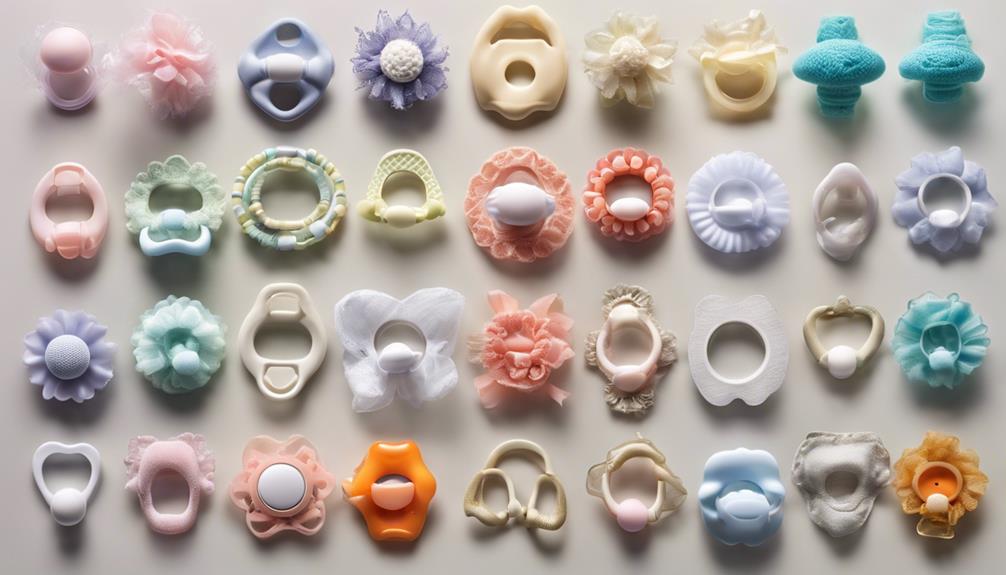
When looking to provide your newborn with the best pacifier for sleep, it's essential to take into account factors like the shape of the pacifier and the recommended size for your baby's age.
The pacifier shape plays a vital role in ensuring newborn comfort, so consider options with flat, oval, or round nipples to find the right fit. Opt for a correct size according to your baby's age to promote safety and proper development.
Choose a pacifier with a one-piece design to prevent choking hazards and guarantee durability. It's important to select pacifiers made from safe materials like natural rubber to avoid harmful chemicals.
Check for air holes and a shield of at least 1.5 inches to guarantee proper ventilation and reduce the risk of suffocation. Prioritizing these aspects will help you choose a pacifier that not only soothes your newborn but also keeps them safe during sleep.
Introducing Pacifier to Your Newborn
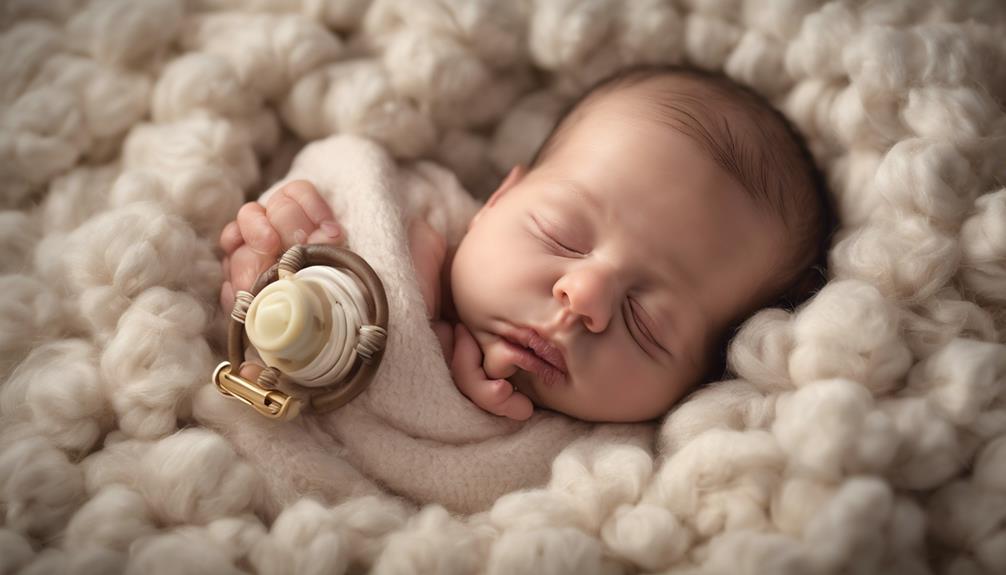
To ease your newborn into using a pacifier, it can be helpful to offer it during calm moments and while swaddled for better acceptance. When introducing a pacifier to your newborn, remember to wait until they aren't hungry or tired.
Apply gentle pressure on their tongue and gently move the pacifier in circular motions around their mouth for proper positioning. It's also a good idea to try out different shapes and brands of pacifiers to see which one your newborn prefers.
To encourage acceptance, consider dipping the pacifier's tip in a bit of breast milk or formula. This can help associate the pacifier with the comfort of feeding. If you have any concerns or need personalized tips on introducing pacifiers, don't hesitate to reach out to healthcare providers.
They can provide guidance on safe pacifier use and offer valuable advice on making the introduction process smoother for both you and your newborn.
Tips for Pacifier Sleep Success
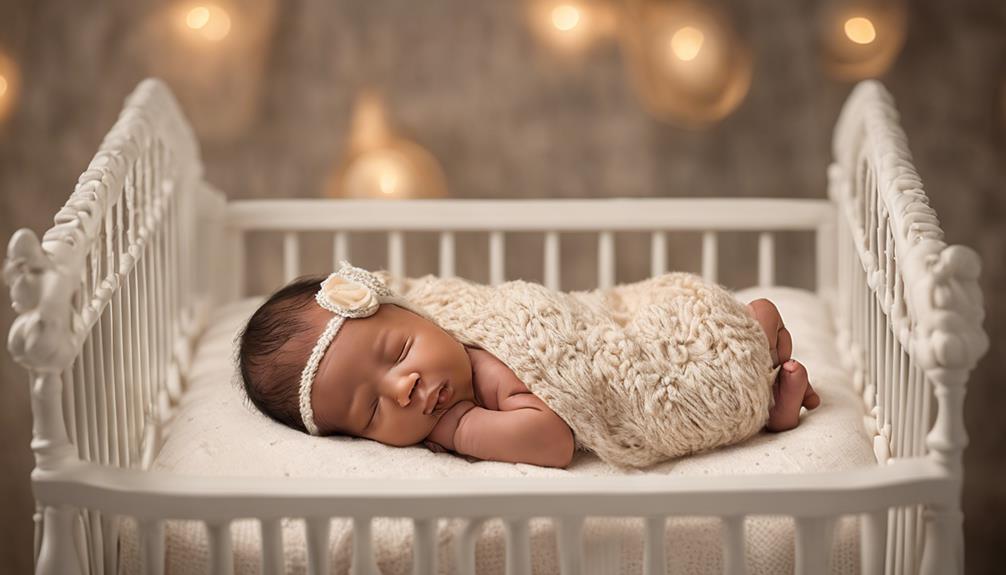
For successful pacifier use during sleep, ensuring proper positioning and secure placement is essential to promote safe and restful slumber for your newborn. Here are some practical tips to help you navigate pacifier sleep success:
| Tip for Pacifier Sleep Success | Description | Benefits |
|---|---|---|
| Placement | Make sure the pacifier is placed securely in your baby's mouth, allowing them to suckle comfortably. | Helps soothe and relax your newborn for better sleep. |
| Monitoring Sleep Patterns | Observe how your baby responds to the pacifier during sleep and adjust its use accordingly. | Promotes healthy sleep habits and comfort for your little one. |
| Weaning Off Pacifier | Start gradually reducing pacifier use between 6-12 months to prevent dependency and potential sleep disturbances. | Encourages self-soothing and independent sleep habits in the long term. |
Managing Pacifier Use During Sleep
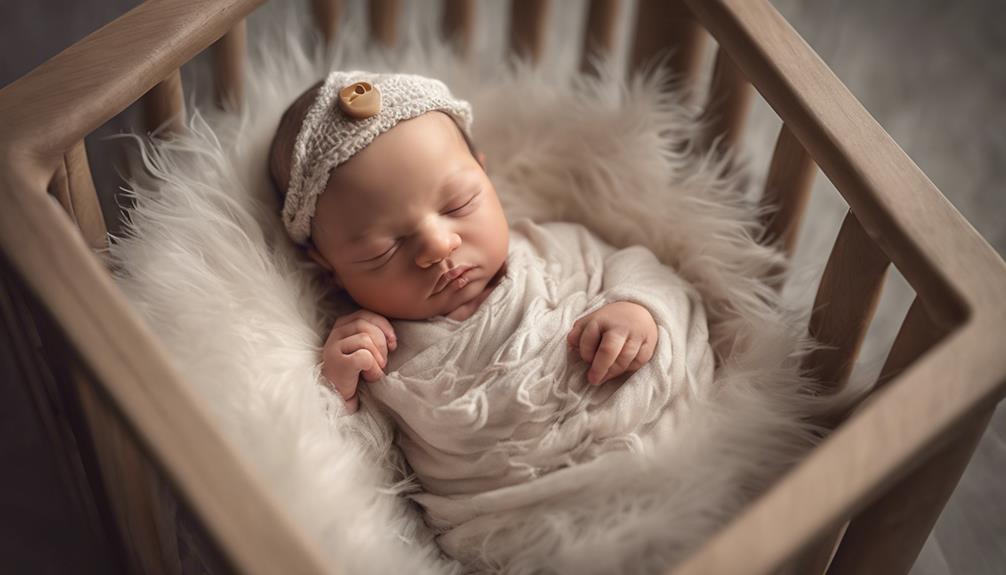
Managing pacifier use during sleep involves ensuring secure placement and monitoring your newborn's comfort and sleep patterns for best rest. When it comes to using a pacifier for safe sleep and improved rest, here are some essential tips to take into account:
- Let the pacifier stay: It's okay to allow your baby to keep the pacifier in their mouth while they sleep as it can help them self-soothe and maintain better sleep patterns.
- Don't rush to replace: If the pacifier falls out during sleep, there's no need to rush to put it back in. Your baby might still be able to settle and sleep well without it.
- Avoid unnecessary disruptions: Removing the pacifier during your baby's sleep can disrupt their rest and potentially lead to more frequent wake-ups.
- Encourage independent sleep: Whether with or without a pacifier, promoting independent sleep skills can be beneficial for your newborn's overall sleep quality and self-soothing abilities.
Conclusion
In our journey to help our newborn sleep with a pacifier, let's remember that patience is key. Like a gentle lullaby, the pacifier can soothe our little one into peaceful slumber.
Embrace the process, trust your instincts, and seek support when needed. Together, we can create a harmonious bedtime routine that brings comfort and rest for both baby and parent.
Sweet dreams await us all.
